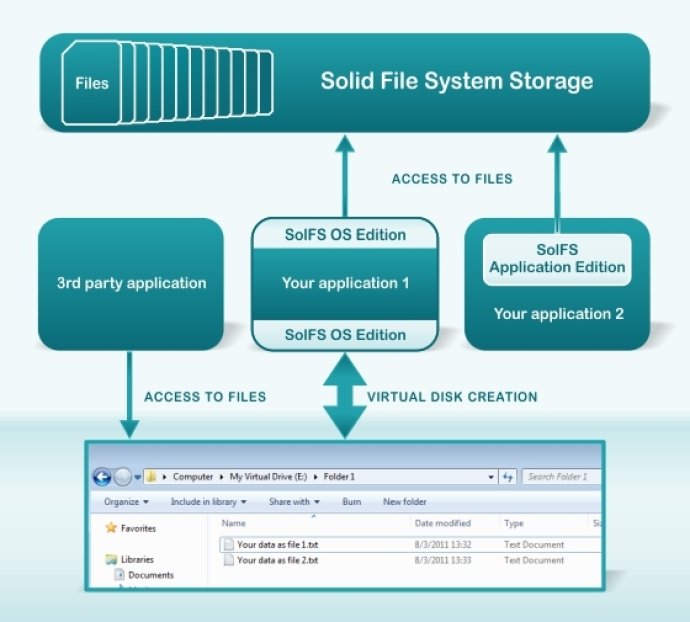Solid File System is a file system software that uses one file on the media for storing data, with features such as journalling, multiple streams per file, encryption, and compression. It allows for unlimited storage file size, making it a reliable choice for data storage solutions.

One thing that sets SolFS apart from other file systems is its ability to simplify or completely solve the problem of managing a large number of supplementary files that an application may need. This can save a lot of headaches for both developers and end-users. By having all files kept in one place out of the user's reach, the problem of accidental file deletion is also solved.
When an application works with several datasets linked with each other, it is important to keep all the data in one file. Using SolFS, developers can guarantee the integrity and completeness of all their data. Additionally, the use of one file system storage makes it easier to maintain and support the application.
One of the best things about SolFS is that it works on a variety of platforms, including Windows, .NET, Android, Linux, MacOS, iPhone and even custom hardware platforms. SolFS is written in ANSI C and can be used as an embedded file system for these custom platforms, adding transparent compression and encryption support.
Overall, SolFS is a great solution for developers who want to enhance their application's file system capabilities. With its robust features and broad compatibility, SolFS is a software that should be on any developer's radar.
Version 5.1: Now it's possible to turn the use of system cache on or off
Version 5.0: Support for multivolume containers
Version 4.5: Versions for Android and iPhone/iPad
Version 4.0: SQL-like search engine to find files by metadata (tags).
Version 3.1: ActiveX control for use of SolFS from Visual Basic and scripting envirnoments.
Version 3.0: Improved speed, redesigned check and repair operations, journalling.
Version 2.2: Improved memory management